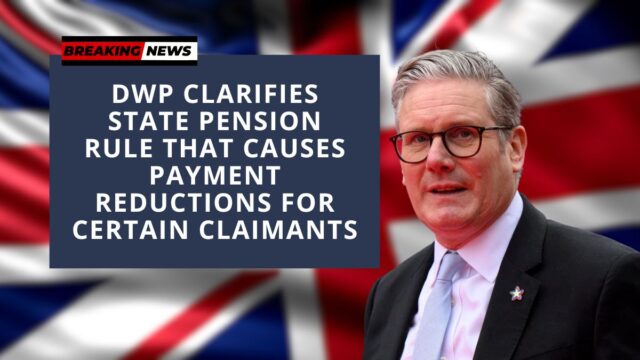A Department for Work and Pensions (DWP) minister has addressed concerns regarding why certain pensioners experience a drop in payments upon reaching state pension age. This explanation came in response to a Parliamentary query from Liberal Democrat MP Victoria Collins, who raised concerns about how integrated pension schemes affect individuals—particularly low-income earners and women.
What Are Integrated Pension Schemes?
Integrated pension schemes are employer-sponsored arrangements designed to provide a steady and predictable income during retirement. According to Pensions Minister Torsten Bell, these schemes work by offering a higher private pension before a person reaches the state pension age, which is then reduced once the state pension kicks in.
Essentially, your occupational pension is temporarily increased, assuming that the state pension will later make up the balance. While this setup helps reduce employee contributions, it can result in a lower total pension payout, especially if you had lower lifetime earnings.
Who Is Affected Most?
Mr. Bell highlighted that women and lower-income workers are likely to see greater reductions in their occupational pensions. This is largely due to labour market disparities, such as part-time work or career breaks, which have historically impacted these groups. As a result, they tend to accumulate smaller pension pots, making them more vulnerable to reductions from integration.
Changes to State Pension Age
The current state pension age in the UK is 66 for both men and women, but it’s set to increase to 67 between April 2026 and April 2028. This change may also influence how integrated pensions function, as the timing of payouts will shift accordingly.
Importance of Scheme Transparency
Mr. Bell emphasized the need for clear communication from pension scheme trustees. Members must be informed about how their pensions are calculated and how integration affects their retirement income.
If pensioners believe they weren’t given enough information, they are encouraged to first use the scheme’s internal dispute resolution process. If the issue remains unresolved, they can escalate the matter to the Pensions Ombudsman.
DWP’s Limited Role in Pension Rules
While the DWP provides overall pension policy guidance, Mr. Bell clarified that specific scheme rules are determined by employers and trustees. The calculation of pension benefits, including how integration is handled, lies outside the DWP’s jurisdiction.
Conclusion
The DWP has clarified that integrated pension schemes are designed to balance private and state pension incomes over time. However, these schemes can lead to reduced payouts, especially for low-income earners and women, due to historic employment patterns. To ensure fairness, pensioners should seek transparency from their trustees and use the available dispute mechanisms if needed. Ultimately, understanding your pension structure is crucial for making informed retirement decisions.
FAQs
1. What is an integrated pension scheme?
An integrated pension scheme is a retirement plan where your employer adjusts your private pension to factor in expected state pension payments, resulting in a reduced occupational pension once state pension begins.
2. Why might women see a larger reduction in pension payments?
Women often face pension reductions due to lower lifetime earnings, part-time work, or career breaks, making them more vulnerable under integrated schemes.
3. Can I challenge how my pension has been calculated?
Yes, you can start by using your scheme’s internal dispute resolution process. If unresolved, the matter can be taken to the Pensions Ombudsman.
4. Is the DWP responsible for private pension calculations?
No, pension scheme rules are managed by employers and trustees. The DWP has no direct control over how individual pensions are calculated.
5. What is the upcoming change to the state pension age?
The state pension age will increase from 66 to 67 between April 2026 and April 2028, affecting when integrated pension reductions take place.
